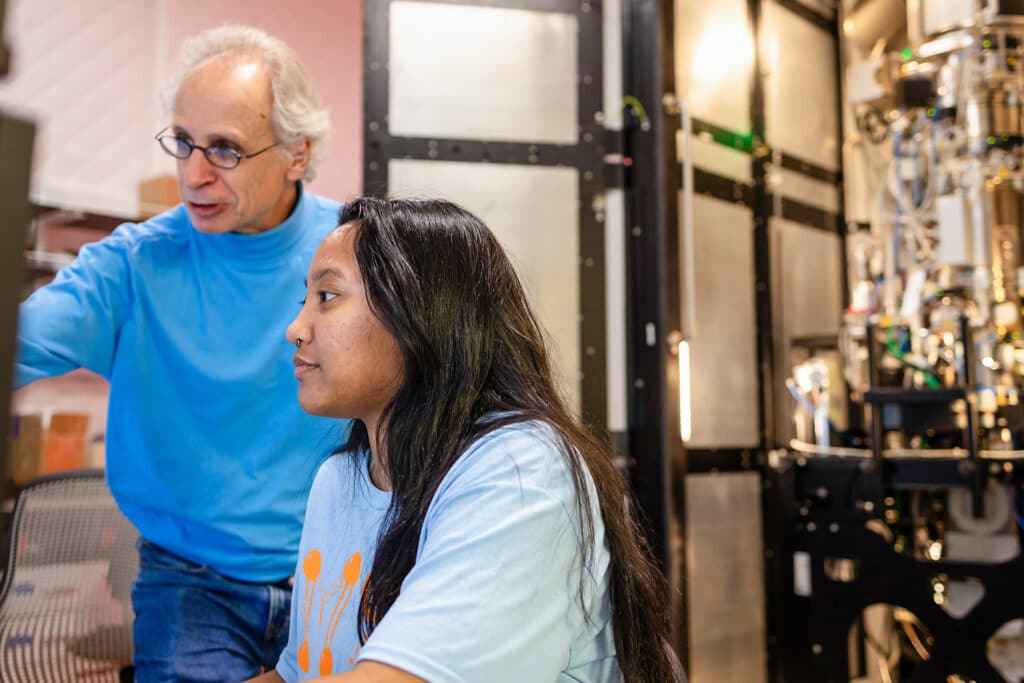
Materials Science and Engineering, BS
Materials science and engineering is a unique, interdisciplinary field centered on developing new materials and improving existing materials with broad applications in all engineering fields. We believe our students are the future of materials science, and our program is committed to providing you with all the necessary resources for becoming local and global leaders in a fast-growing, high impact discipline.
Program overview
Our materials science and engineering program focuses on the study of design, mechanics, chemistry, physics, mathematics, and electronics, serving as a steppingstone for students to grow in their professional and academic goals. Our curriculum stresses “hands-on” learning through laboratory classes that introduce students to advanced processing and testing techniques while they work toward synthesizing and evaluating the performance of materials.
Through access to educationally relevant internships and co-ops, students will gain real world experience while studying under world class leaders in materials research, many of whom are affiliated with local Oak Ridge National Lab. The department has an expansive research program, providing students and faculty opportunities to work in areas of cutting-edge technology for real-world impact.
Why Study Materials Science and Engineering?
We live in a “materials world” with the advent of new technology and research advancements in materials science and engineering improving quality of life every day. Through our program, students will enter the frontlines of these scientific revolutions, making positive impacts in the lives of others through discovery and creation of smarter, stronger materials.
Program at a Glance
Our mission is to incorporate high-quality education, professional development, and hands-on research through 22 world renowned faculty members and industry leaders. With a 3:1 student to faculty ratio, students will benefit from high exposure mentorship and industry knowledge, fostering a sense of confidence as you blaze a trail in your materials science future.
What can you do with a BS in Materials Science and Engineering after graduation?
Materials scientists and engineers are not limited to one area of study, with opportunities to pursue careers in areas like:
- Aerospace Engineering
- Computer Engineering and Data Science
- Environment, Sustainability, and Energy
- Health and Medicine
- Infrastructure, Transportation, and Society
- Robotics and Manufacturing
As a rapidly growing industry, materials science is the perfect area of study for students seeking diverse career paths with opportunities for further specializations. Pursuing a degree in materials science and engineering opens the doors to professions like materials and process engineering in manufacturing and production, nanotechnology engineering, materials specialist in automotive and transportation sectors, biomaterials engineering, and more.
Featured Courses
As you embark on your academic journey with us, you’ll discover a dynamic and interdisciplinary field of study that serves as the cornerstone for solving tomorrow’s problems. Our undergraduate program is meticulously designed to offer a holistic understanding of materials science, blending fundamental principles with cutting-edge research. Below are some of the courses that students in our program can choose to take. For a list of all courses, visit the undergraduate catalog.
MSE 120 Impact of Materials on Society
Explores the connections between the discovery of new materials such as ceramics, glass, concrete, metals, plastics, semiconductors etc. and the development of technologies and social structures worldwide. Connects past to the inventions of cutting-edge materials, we will also explore the future social impacts of new materials in medicine, construction, transportation, clean energy, sports, and other areas.
MSE 260 Materials Engineering Thermodynamics
Thermodynamic laws, entropy, internal energy, and state functions. One-component and two-component phase equilibria. Characteristics of small and large molecular systems. Surface energy, elasticity, and material defects.
MSE 302 Mechanical Behavior of Materials I
Fundamentals of deformation and fracture in solids, including metals, ceramics, polymers, and composites. Topics include stress and strain tensors, isotropic and anisotropic elasticity, anelastic and viscoelastic deformation, plasticity, tensile testing, mechanisms of plastic deformation in crystalline solids, basic strengthening mechanisms, and elementary fracture mechanics.
MSE 489 Materials Design
Design projects involving materials selection and performance.
Complementary minors
Interested in pursuing a minor to expand your engineering expertise? See below for examples of curriculum that would pair well with a materials science and engineering degree:
Admissions and Aid
Choosing the right university to pursue an engineering degree is an important decision—and a significant investment. We want to make sure that you have the information you need to both apply and make attending UT affordable.


Ready to Join Us?
See yourself on Rocky Top? We’ve made it easier than ever to apply for admission. Learn more about our admission requirements and the steps to apply to be an Engineering Vol.
